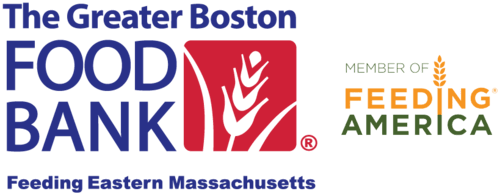Join GBFB in Our Call for a Strong Farm Bill to Tackle Hunger
If you were asked how the Farm Bill affects Eastern Massachusetts, you might think of cranberry bogs or fisheries on Cape Cod, vegetable farms in Bristol County, or urban gardens in Boston or Lowell. This is all true, as the omnibus legislation sets federal agricultural policy that affects food producers. But the largest expenditure in the Farm Bill is hunger-relief programs that affect the one out of every three people in Massachusetts who face food insecurity.
Every five years, Congress has the chance to fund critical programs that advance food security through the Farm Bill. The current Farm Bill has been extended several times in the past year, and in recent months, legislators have been deliberating over what will make it into the next reauthorization of the Farm Bill.
The conversations taking place in Washington, DC directly affect The Greater Boston Food Bank’s ability to provide three nutritious meals per day to Eastern Massachusetts and the ability of our neighbors to access healthy and affordable food. At a time of great need, when food insecurity remains stubbornly persistent, GBFB calls for a strong Farm Bill that protects and reinforces antipoverty programs that tackle hunger at its root causes. But what would a strong Farm Bill look like?
GBFB’s Farm Bill Priorities
The Emergency Food Assistance Program (TEFAP) connects our nation’s farmers and food producers with food banks. TEFAP is essential in relieving the burden of high food prices by providing nutritious food to GBFB and food banks across the country, helping us fulfill our mission to provide three healthy meals per day for our neighbors. Fifteen to 20 percent of the food that GBFB distributes to our partner agencies comes from TEFAP, supporting 600,000 of our neighbors each month. A strong Farm Bill would increase mandatory funding for TEFAP food purchases to $500 million per year, adjusted for inflation; increase discretionary funding for TEFAP storage and distribution to $200 million per year; and reauthorize $15 million per year in discretionary funding for TEFAP infrastructure grants.
The Supplemental Nutrition Assistance Program (SNAP) is the largest hunger-relief program in our nation. In January of 2024, 1.1 million Massachusetts residents were enrolled. SNAP neighbors choose the healthy food they want from grocery stores and farmers’ markets. However, 64 percent of SNAP users report that SNAP benefits were only enough to cover two weeks or less of their monthly food budget, proving that the current benefits are not enough.
In the updated Farm Bill, Congress should prioritize aligning SNAP benefits with the current dietary guidelines and rising food prices to ensure SNAP purchasing power remains strong. In ensuring access to affordable and nutritious foods, SNAP Choice—the concept that the federal government may or may not play a role in limiting or restricting which products SNAP recipients may purchase with their benefits—should be protected and remain a critical focus. A strong bill will streamline eligibility and enrollment processes by improving SNAP access for older adults, college students, veterans, working families, immigrants and others who face eligibility and enrollment barriers. Greater access will also extend to military families by excluding the Basic Allowance for Housing from the gross income calculation for SNAP eligibility.
The Commodity Supplemental Food Program (CSFP) is a federal nutrition program aimed at providing food to seniors. GBFB is the sole administrator of CSFP for Massachusetts and operates at over 35 partner sites across Eastern Massachusetts.
The number of seniors using GBFB’s partner food pantries has doubled since the beginning of the pandemic, as inflation continues to make necessities unaffordable for seniors on a low or fixed income. Low-income seniors are at increased risk for health problems, but CSFP provides nutritious food for seniors in our community. A strong Farm Bill would streamline reporting procedures, broaden eligibility to 185 percent of the poverty line, and maintain sufficient funding so that GBFB and other administrators can meet the needs of the rising senior population.
Your Voice Matters
Your voice matters as our representatives decide where to best allocate funding in the Farm Bill. Take action today and let them know that you support effective and long-standing programs including TEFAP, SNAP, and CSFP. These programs are the cornerstone of the country’s antihunger strategy.
As these conversations take place on the federal level, you can always advocate, donate, and volunteer on the local level, supporting GBFB and our hunger-relief partners in our mission to end hunger here.
Learn more about GBFB’s Policy Priorities and Advocacy work.
